René Wittwer: a sporty globetrotter
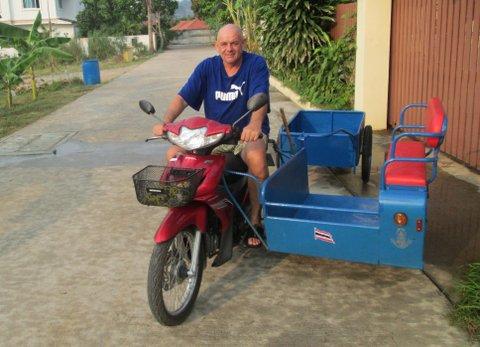
The former ice hockey player from Langnau in the Emmental is retired and lives in Thailand. The lifestyle is not new to René Wittwer because he already had a Thai-Swiss family in Switzerland. With his current Thai partner, he has now settled in the south of Thailand for good.
When asked why her father emigrated to Thailand almost six years ago, Wittwer’s 24-year-old daughter says laconically: “He was fed up”. Looking a bit closer, the answer sounds a bit different.
Originally a bricklayer and later dispatcher of construction material, Wittwer was a passionate ice hockey player when he was young. Thanks to his talent and hard work, he rose to become one of the most highly sought-after players in the ice hockey town of Langnau. The village ice hockey team in the Emmental, canton Bern, was set up in 1946 and has mostly competed in Switzerland’s first division.
However, the now 63-year-old was never able to make a living playing ice hockey. In the 1970s, only very few people actually managed to do so. Michael “Michu” Horisberger, Wittwer’s best friend from Langnau, vividly remembers how the 19-year-olds moved from rural Langnau to sophisticated Geneva to do their military service at the ice hockey club Genève-Servette.
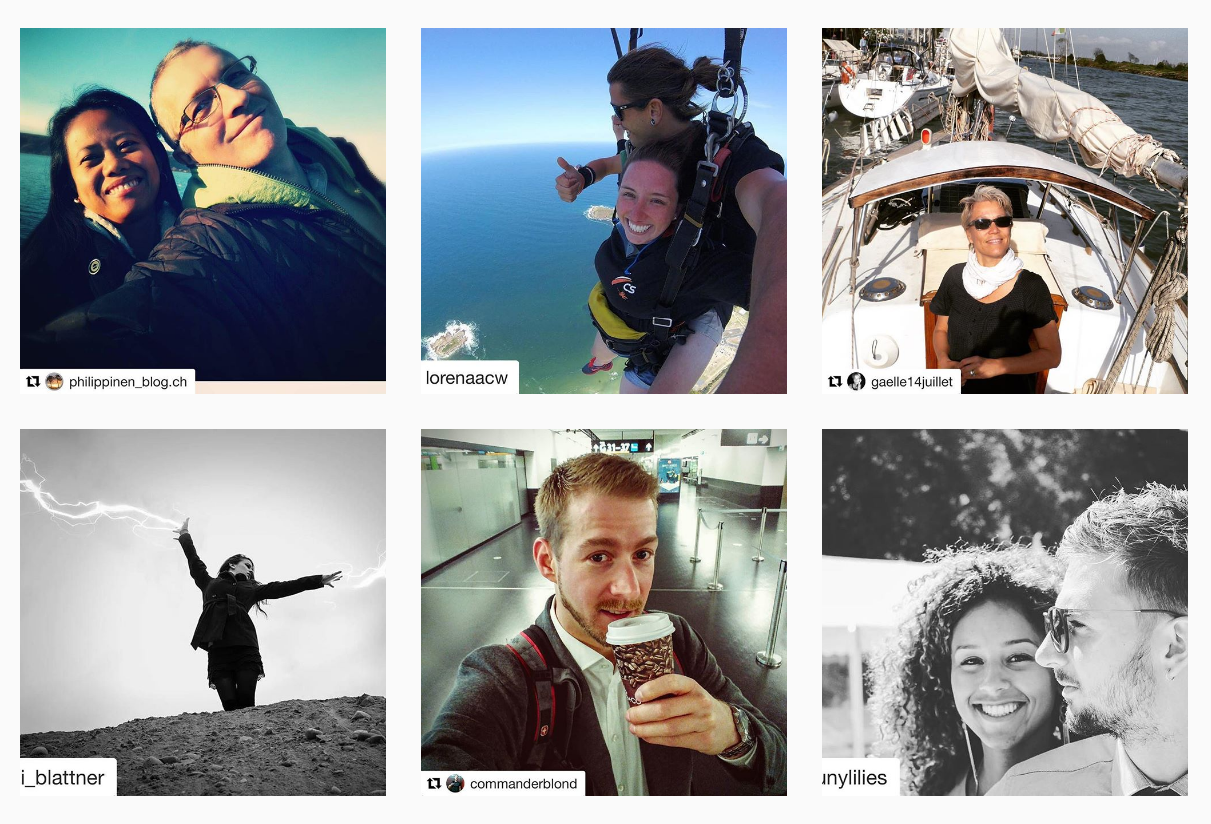
For two seasons, Wittwer stayed in the French-speaking part of Switzerland to improve his French as well as his professional skills. He then returned to Langnau to play ice hockey. A year previously, in 1976, Langnau became Swiss champions for the first and only time – unfortunately without Wittwer.
Years of working as a coach for the lower leagues and as a junior trainer of his club followed. He spent the off-season summer months playing football and tennis, two other sports he excelled at.
In the 1980s, he decided to end his 25-year career as an athlete, which had inevitably made him a modern nomad. The transition from his sports career to a normal life was not really hard for Wittwer as he had always worked and developed his professional skills during the time he played ice hockey.
Professional and family life
His professional life during and after his sporting career can be described as stable, followed by rapid changes. His first employer in Langnau, for whom he worked for 31 years, greatly appreciated him and promoted him to be the workshop supervisor.
As he was worried about the development of the company and what would happen once the owner retired, he found himself a job as a foreman with a well-known construction company. During his time there, the company merged twice, a direct consequence of the ongoing consolidation process in the construction industry. Being a highly-qualified employee, his services were still in demand even during the merger.
He was never made redundant – neither as a sportsman nor in his professional life. He has always been able to make changes himself. He still had to work hard in his job as dispatcher, stay fit and keep his head above water financially, first and foremost to be a good father to his children.
Wittwer’s family life was not that straightforward. He has two children with his first wife, whom he divorced shortly after they got married. He then married a young Thai woman, who brought two children into the marriage. The couple had another daughter, who is now 24. She regularly goes to see him in Thailand and is even toying with the idea of emigrating to her mother’s country in the near future. Family troubles led to the couple growing apart. After his second divorce, all three children stayed with him and Wittwer brought them up as a single father. The mother stayed in touch with them, albeit loosely.
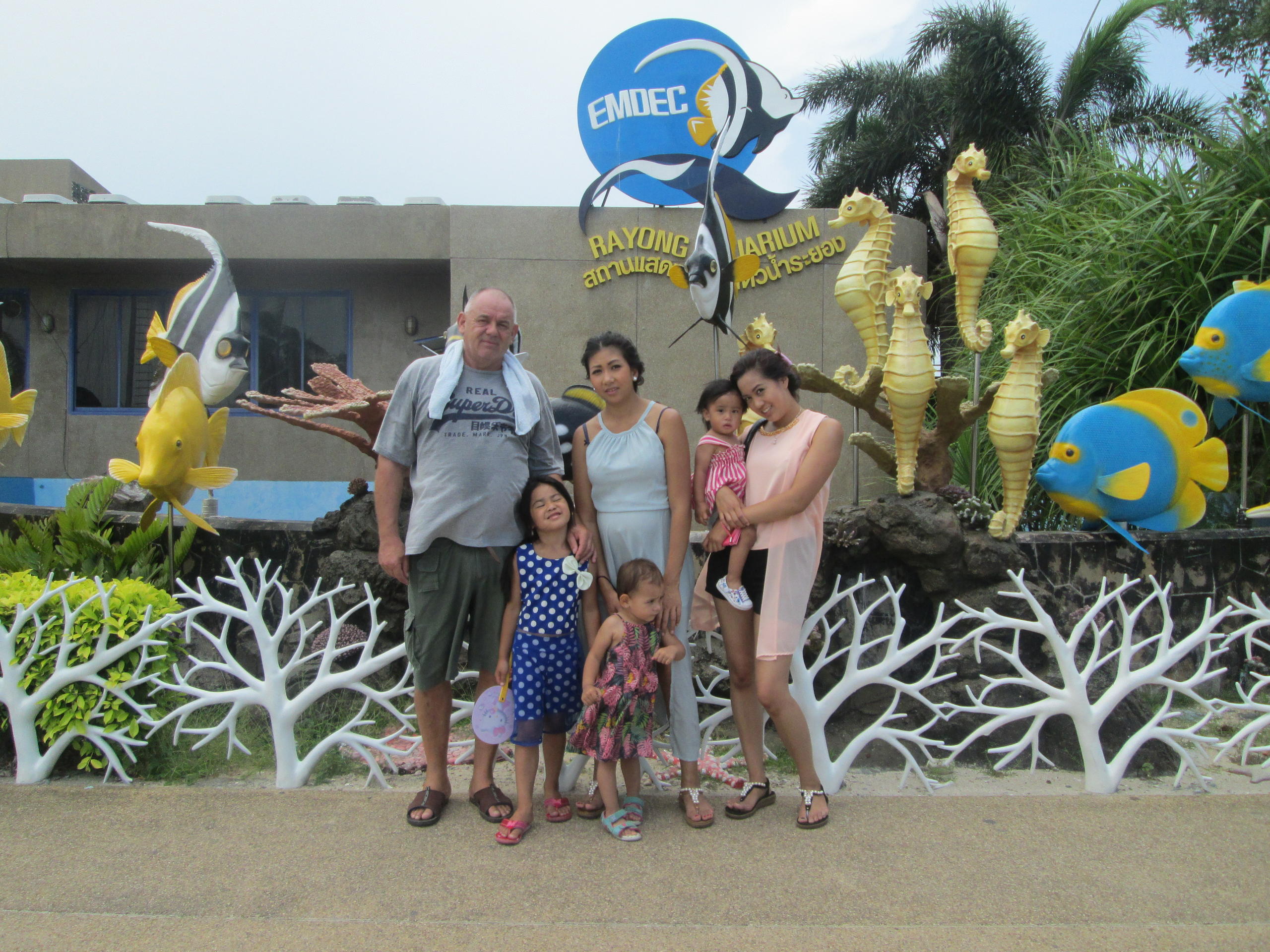
A new direction
Later Wittwer met his current partner, Lek. also from Thailand. Shortly after he met Lek, Wittwer decided to change his life again. As soon as his daughter became independent, he take early retirement and emigrate to Thailand.
It became clear that the couple would move to the tourist destination in the south of the country. As there are many foreigners there, a Farang – the Thai term for foreigner – does not feel so uprooted and speaking Thai is not absolutely necessary to survive.
His final decision was influenced by the state of his finances. An average pensioner’s income, including savings, is more than enough to pay for the living expenses of two or three people in Thailand. It might not be enough to live in luxury, but it is certainly enough to live a comfortable middle-class life.
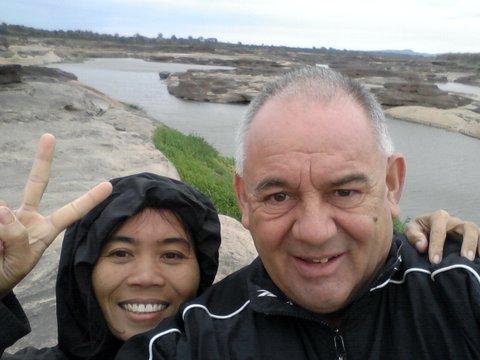
Out and about
The couple rented a nice house in Bangsaray in the Pattaya area in the south of Thailand, which needed a lot of work. The big garden was turned into a small plantation as Wittwer’s partner wanted to sell vegetables, fruit and flowers at the local market.
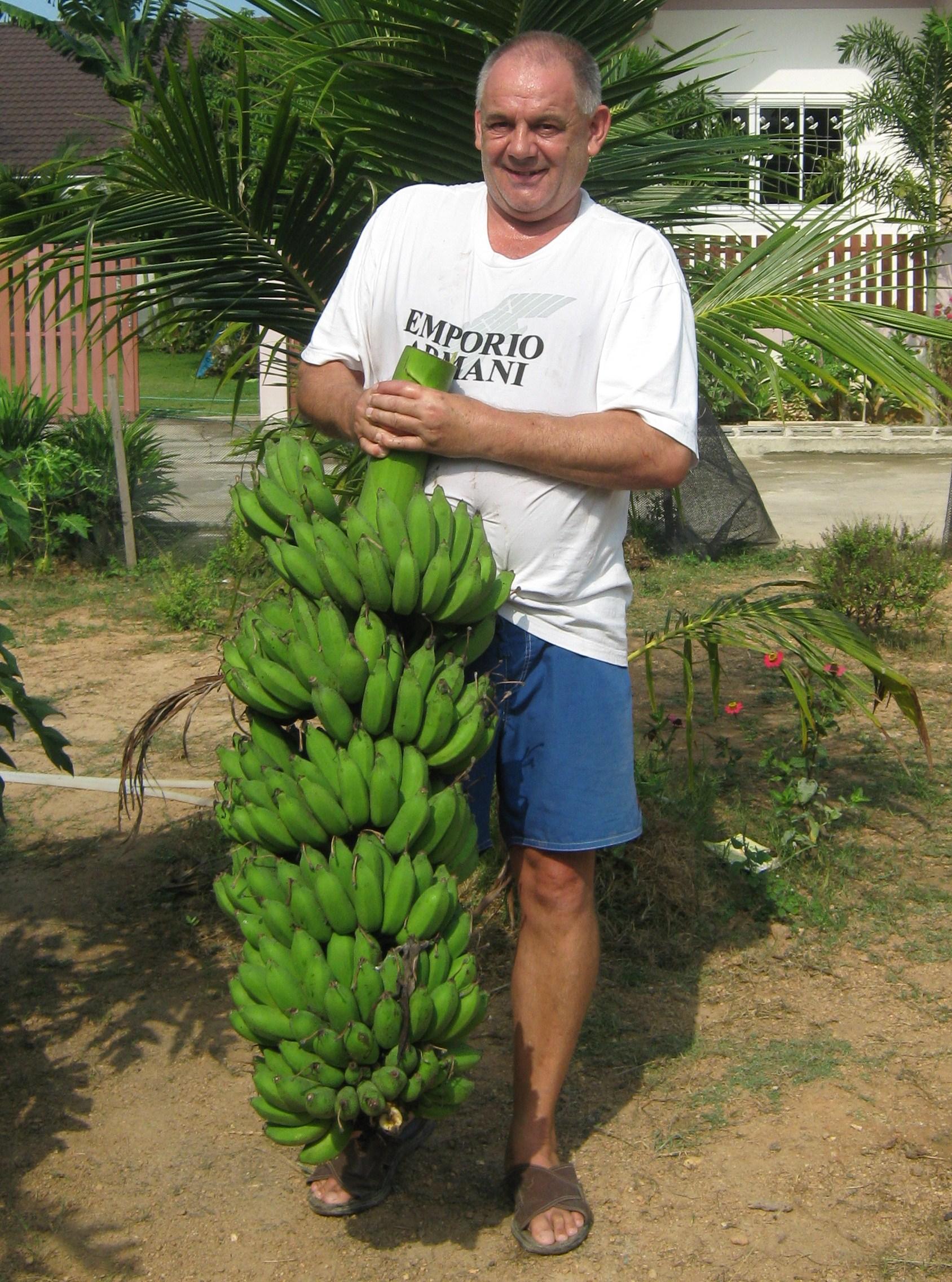
They have now lived there for five years, but they eschew the usual tourist attractions. Their own needs and interests are more important to them.
Wittwer’s connection to his home turf and the people close to him is still pretty intense, despite the distance. He closely follows political and cultural life in Switzerland. Getting updates from online media and keeping in touch with his friends and family via Skype or Facebook are a big part of his daily life.
Horisberger is convinced that his friend “Rönu” is better informed about what’s happening in Switzerland than he is. He says Wittwer is an interesting bridge builder between his old and new home, not least because of his regular social media updates about his life in Thailand.
swissinfo.ch: What does a day in the life of René Wittwer look like”?
R.W.: The good thing is that I don’t really have to do anything, however, I still think about what to do every day. After breakfast, I usually check the world news for one to two hours. This is followed by working around the house or the garden, depending on what I feel like doing. Once I am done with these jobs, I have a shower and a siesta either at home or at the beach. The day finishes with dinner followed by either watching a movie or checking social media.
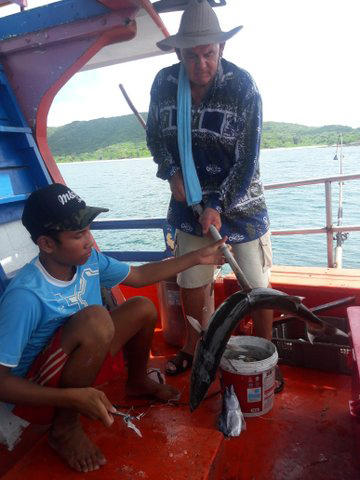
I also have hobbies like travelling, photography, fishing, playing pool and handling snakes. We also have many visits from friends and family. We love welcoming them in our home and spending time with them.
swissinfo.ch: What is your current purpose in life. Are you still faced with challenges?
R.W.: Working, like I did in Switzerland, is no longer my purpose in life. I am happy maintaining and running our house and plantation. I no longer need big challenges. Many people overestimate what exactly their purpose is in life, and then crash.
swissinfo.ch: How does a former top athlete train? Do you still have any ambitions as a sportsman?
R.W.: Compared to a lot of others, I am still pretty fit. Due to my arthritis, I can no longer play football or tennis, two things I used to be pretty good at apart from playing ice hockey.
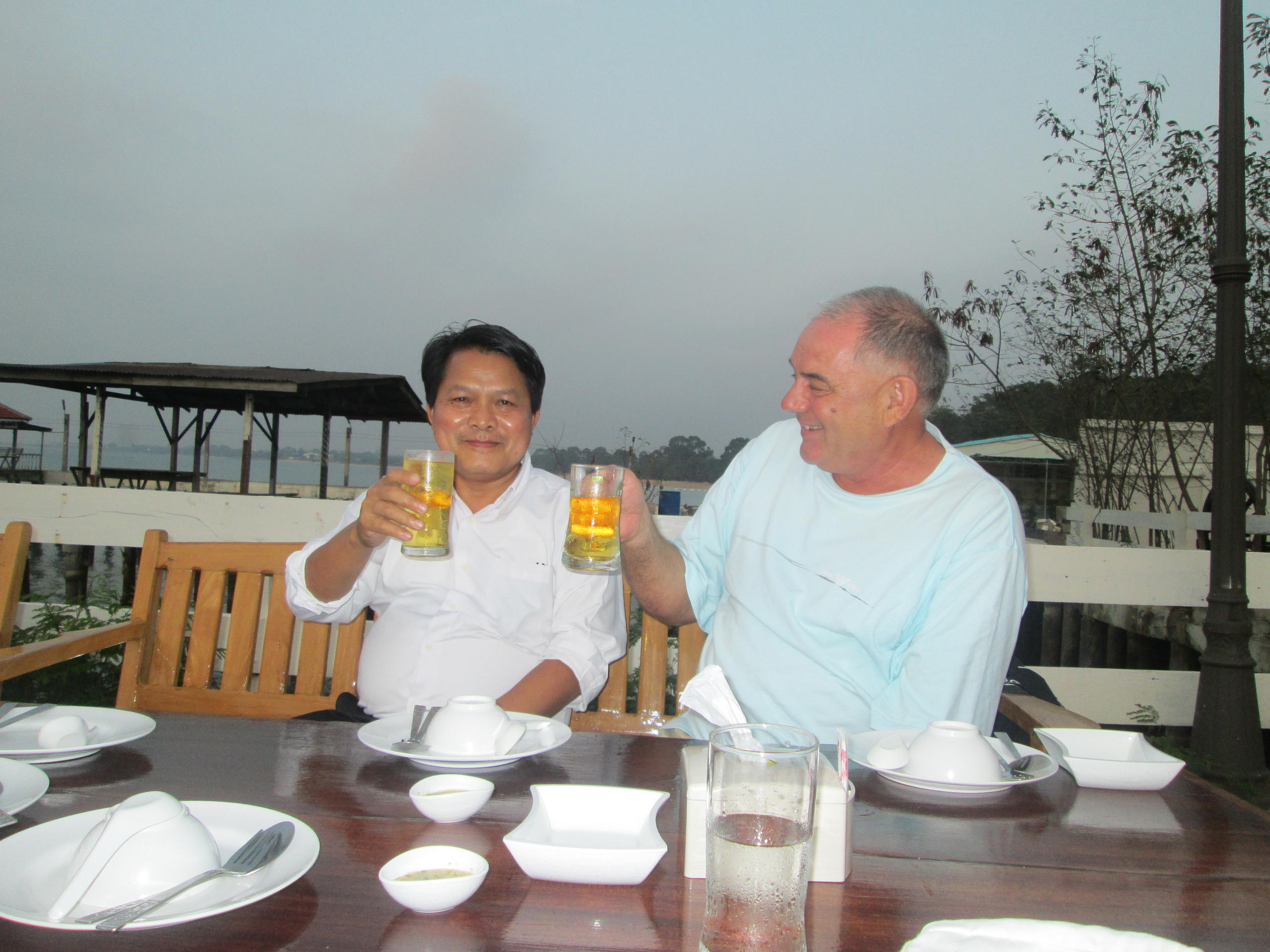
Are you a Swiss citizen living abroad? Label your Instagram photos with #WeAreSwissAbroadExternal link.
The views expressed in this article are solely those of the author, and do not necessarily reflect the views of swissinfo.ch.
(Translated from German by Billi Bierling)

In compliance with the JTI standards
More: SWI swissinfo.ch certified by the Journalism Trust Initiative








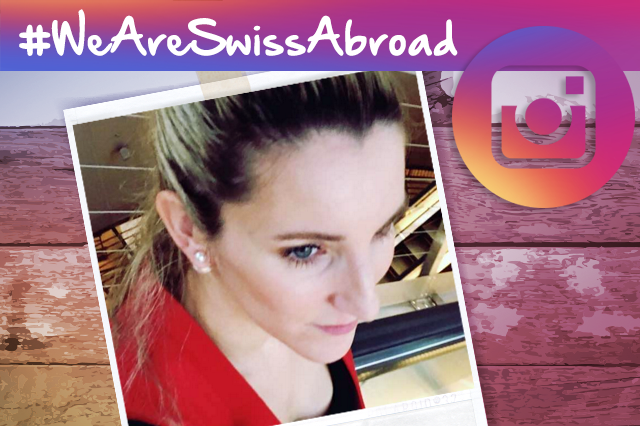




You can find an overview of ongoing debates with our journalists here . Please join us!
If you want to start a conversation about a topic raised in this article or want to report factual errors, email us at english@swissinfo.ch.